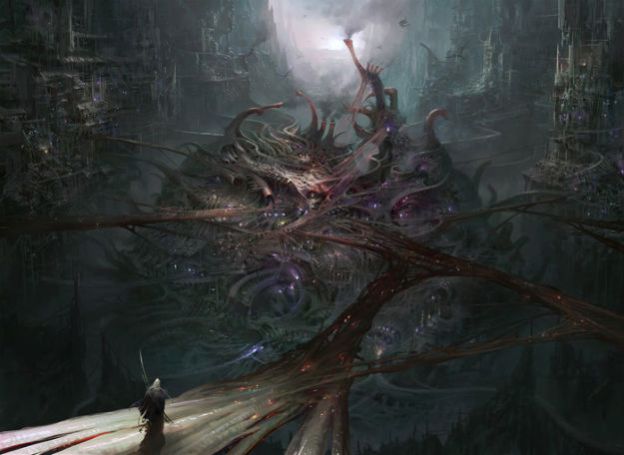
It’s been two weeks since Brian Fargo’s InXile entertainment opened a Kickstarter campaign to fund Torment: Tides of Numenera, a spiritual successor to the beloved PC role-playing game, Planescape: Torment. Within a day of opening the campaign, Torment blazed past its goal of raising $900,000, raising nearly $1.9 million in the process. As of this writing, with another two weeks to go in the campaign, InXile has raise nearly $2.9 million. The studio announced on Friday that if it meets its next stretch goal before the campaign ends, it will be able to bring yet another key staff member from Planescape: Torment onto the Tides of Numenera development team.
If InXile is able to raise $3.5 million for Torment, Obsidian Entertainment’s Chris Avellone will join the project. The director of games like Star Wars: Knights of the Old Republic 2 was also the lead designer of Planescape: Torment, which will bring even more of the original Black Isle team from Interplay back together for the project. Colin McComb, of the original video game, and Planescape world writer Monte Cook are already writing the new game. Series artist Aaron Meyeres and composer Mark Morgan return as well.
Avellone wouldn’t be taking over design duties on the game, but he will be helping guide the game creatively to make sure it reflects the style and spirit of the classic. “[Chris] will be reviewing and providing feedback on all creative elements of the game, including the story, characters, and areas,” said InXile, “He’ll [also] be designing and writing an eighth companion for the game, working with Colin and Monte to craft a companion ideal for both Torment and the Ninth World.”
InXile also said that fantasy writer Patirkc Rothfuss (The Wise Man’s Fear) may also join the project, though his participation hasn’t been finalized.
This isn’t the first time that Obsidian Entertainment has offered to help out on one of InXile’s Kickstarter projects. After raising $2 million for Wasteland 2 in 2012, Obsidian Entertainment offered technical support to InXile, giving them access to many of the user interface and dialogue tools it has already developed for other games, including its own Kickstarter success, the still codenamed Project Eternity.
“Having the extra funding increases the scope and scale of the game across all fronts,” Brian Fargo told Digital Trends, “We budget for the game in a modular fashion so that we can create a core experience at the minimum funding level but as the dollars increase we add more locations, more writers, more music, extra novellas and even an orchestra. We don’t look to make any profit from the dollars raised through crowd funding.”
New materials and input from even more original staff is exactly what fans likely want their money used for.


